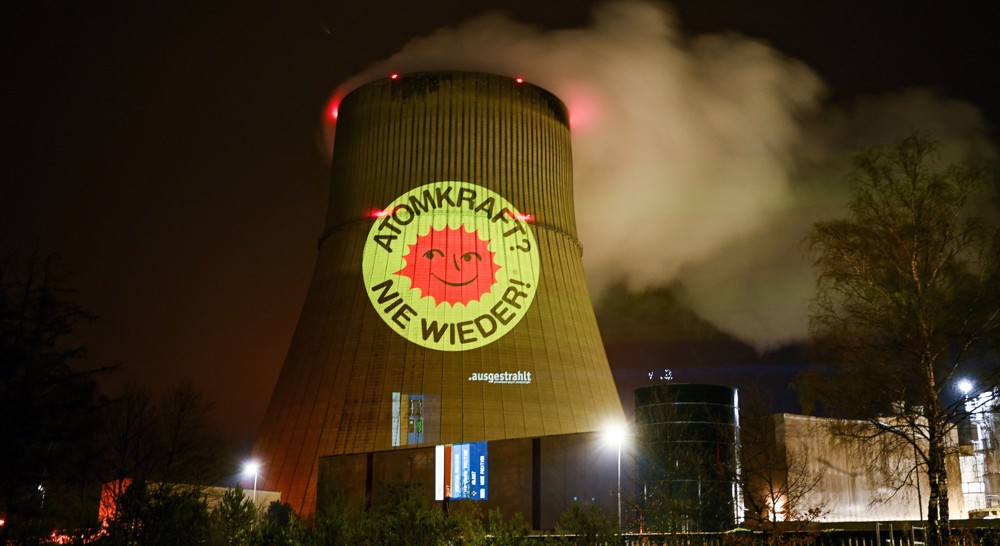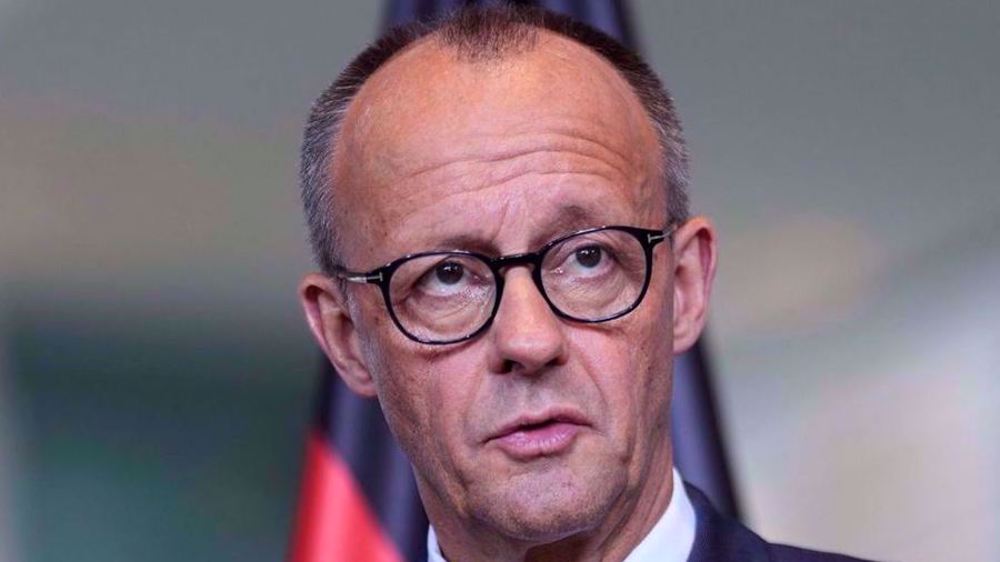Germany shuts down last three nuclear plants amid energy crisis
Germany will permanently shut down its final three operating nuclear power plants, in a move to finally fulfill a plan set in motion more than 20 years ago to end the country’s reliance on nuclear energy.
The nuclear plants – Emsland, Isar 2, and Neckarwestheim – will be closed on Saturday, according to the German authorities.
The three reactors had been due to end their lives by the end of last year, but the war in Ukraine and the following energy crisis, as well as concerns over energy security without Russia’s gas, prompted Berlin to delay its plan and keep the reactors running only until April 15.
In the meantime, environmental groups planned to mark the day with celebrations outside the three reactors and rallies in major cities, including Berlin. Small, closed-door ceremonies inside the plants were also organized.
“It is a great achievement for millions of people who have been protesting nuclear in Germany and worldwide for decades,” CNN quoted Paul-Marie Manière, a spokesperson for Greenpeace, as saying.
For critics of the policy, however, it’s irrational to turn off a low-carbon source of energy as the impacts of the climate crisis intensify.
They argue that fossil fuels should be phased out first as part of global efforts to curb climate change. They say that nuclear power produces far fewer greenhouse gas emissions and is safe, if properly managed.
More than 30 percent of the country’s energy comes from coal, the dirtiest of the fossil fuels.
Bavaria’s conservative governor, Markus Soeder, called the shutdown “an absolute mistaken decision.”
“While many countries in the world are even expanding nuclear power, Germany is doing the opposite,” Soeder said.
“We need every possible form of energy. Otherwise, we risk higher electricity prices and businesses moving away,” he added.
Claudia Kemfert of the German Institute for Economic Research in Berlin, however, believes the 5 percent share of Germany’s electricity currently coming from its remaining three reactors can be easily replaced without risking blackouts.
The government plans to replace the roughly 6 percent of electricity generated by the three nuclear plants with renewables as well as gas and coal.
Several other countries are treading paths similar to Germany’s, including Denmark, which passed a resolution in the 1980s not to construct nuclear power plants.
Switzerland voted in 2017 to phase out nuclear power and Italy closed its last reactors in 1990.
'Blatant war crime': Iran denounces US-Israel strikes on Gandhi hospital in Tehran
IRGC spox: 650 casualties for US military in two days as Iran missiles force aircraft carrier to fle
Tehran warns of false-flag operations, says Israel ‘undoubtedly’ seeking to widen war
New wave of attacks devastates key US base in Bahrain as Iran strikes back
Melania Trump chairs UN children's meeting as Iran buries kids killed in US-Israeli attack
Why Iran’s Leader refused special protection, leading from the front until last breath
Hezbollah strikes Israeli surveillance, military base in Golan Heights, occupied lands
Iran holds funeral for scores of schoolgirls murdered in US-Israeli aggression












 This makes it easy to access the Press TV website
This makes it easy to access the Press TV website